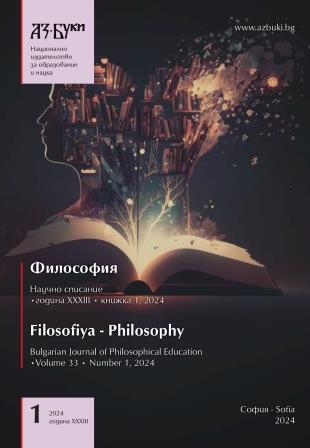„Песента на Желанието (Кама)“: Ако срещнеш Кама, не го убивай
The Song of Desire (Kāma): If you meet Kāma, don't kill him
(the nature of desire in the ancient Indian culture)
Author(s): Milena BratoevaSubject(s): Philosophy, History of Philosophy, Philosophical Traditions, Non-European Philosophy, Special Branches of Philosophy
Published by: Национално издателство за образование и наука „Аз-буки“
Keywords: desire (kāma); asceticism (tapas); dharma; Mahābhārata; The Song of Kāma (Kāmagītā); Ṛṣyaśṛṅga; Yudhiṣṭhira
Summary/Abstract: The present article examines two narratives from the epic Mahābhārata (MBh), focused on the topic of desire (kāma) and the relationship erotic – ascetic (kāma – tapas). The first one is about the horned ascetic Ṛṣyaśṛṅga (MBh, 3); the second – about the teaching of God Kṛṣṇa Vāsudeva to the king Yudhiṣṭhira, culminating in the "Song of Kāma" (MBh, 14). Both narratives are interpreted in the perspective of Hindu ethics, whose foundation is dharma, a key concept of Hinduism. The epics propagate an ideal dharmic code of conduct, based on the so-called four life goals – puruṣārtha. One of these four life goals is kāma – the realm of desires, emotions and sensual pleasures.
Journal: Философия
- Issue Year: 33/2024
- Issue No: 1
- Page Range: 52-71
- Page Count: 19
- Language: Bulgarian
- Content File-PDF

